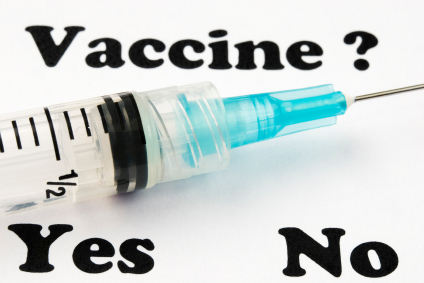Herpes is well known to be the epidemic that is affecting all of the sexually active population around the world. There are two common types of herpes. The herpes simplex virus one causes cold sores, fever blisters and so on, and are more likely to be seen in younger children; however, HSV 1 is also proven to be one of the causes of genital herpes. Herpes simplex virus 2 causes genital herpes and is commonly known to be a popular sexually transmitted disease.
How does any of this link to new born babies? Mothers who are already affected by herpes may affect their infant with herpes during birth. This is a topic of concern, as severe cases of herpes in new born infants can lead to death. Studies have been conducted to find a method that would prove to be the safest way to deliver a baby without spreading the infection to the child.

Records in several hospitals in Washington State from 1989 to 1999 show that caesarean deliveries reduce the chances of the infants contracting herpes during delivery. The investigation showed 85 caesarean deliveries of mothers who were infected by genital herpes, and 117 vaginal deliveries. One infant was found with herpes in the case of caesarean delivery and 9 cases were found for vaginal delivery.
Researchers also conclude that women who have ulcers on their skin during the time of delivery are also less likely to infect their babies with herpes, as they have a higher chance of having a caesarean delivery. The study conducted earlier had 78 women who had ulcers on their genitalia, and none of these women had transferred herpes to their babies.
Other factors were also involved in increasing the chances of the baby getting herpes. Cervical herpes is more easily transferred to the baby than the normal herpes on the skin. Premature delivery is also a cause of concern if the mother has herpes. The study also revealed that if the mother was 21 or younger, the baby was more likely to be infected by herpes during delivery.
Many women may not be aware that they carry the herpes virus and may be actively shedding without showing any symptoms. This can be dangerous for any new baby. Mothers should always be cautious, and take the proper measures to check if they do have herpes or not, and if they do, then take the necessary steps to have a healthy baby.



 Doctors are constantly studying how herpes works in the body and what prevention mechanism the body takes in order to control it. On this certain case researchers are more interested in the kind of measures the immune system makes to stop the herpes virus from spreading. This is done by taking skin samples from those who are affected by herpes and have sores that are healing or skin that are not completely affected.
Doctors are constantly studying how herpes works in the body and what prevention mechanism the body takes in order to control it. On this certain case researchers are more interested in the kind of measures the immune system makes to stop the herpes virus from spreading. This is done by taking skin samples from those who are affected by herpes and have sores that are healing or skin that are not completely affected. So how are herpes and condoms related? Well, the answer is obvious, of course. Condoms create a big difference in the chances of a person contracting a sexually transmitted disease from a sexual partner. Research shows that continuous use of condoms can cut down the chances of someone getting genital herpes by 30%. Condoms also help reduce the chances of contracting other sexually transmitted diseases such as HIV at a substantial rate.
So how are herpes and condoms related? Well, the answer is obvious, of course. Condoms create a big difference in the chances of a person contracting a sexually transmitted disease from a sexual partner. Research shows that continuous use of condoms can cut down the chances of someone getting genital herpes by 30%. Condoms also help reduce the chances of contracting other sexually transmitted diseases such as HIV at a substantial rate. 

 Since herpes is a sexually transmitted disease, you will need to be protected during sexual intercourse at all times, especially if your partner has genital herpes. Probably the best way to keep yourself safeguarded is by making use of condoms during sexual intercourse. Although, new study discoveries show that condoms merely reduce the risk of acquiring genital herpes from others, but does not completely eliminate the chances. How is that possible, you ask? Researchers carried out polls and have found that individuals who use condoms steadily have about 30% reduced risk than those who do not use them. This is disappointing when we consider how condoms work better in terms of preventing the contraction of the HIV virus. This 30% is only because herpes is from skin contact, which means even the area that is not covered by the condom could help spread the infection.
Since herpes is a sexually transmitted disease, you will need to be protected during sexual intercourse at all times, especially if your partner has genital herpes. Probably the best way to keep yourself safeguarded is by making use of condoms during sexual intercourse. Although, new study discoveries show that condoms merely reduce the risk of acquiring genital herpes from others, but does not completely eliminate the chances. How is that possible, you ask? Researchers carried out polls and have found that individuals who use condoms steadily have about 30% reduced risk than those who do not use them. This is disappointing when we consider how condoms work better in terms of preventing the contraction of the HIV virus. This 30% is only because herpes is from skin contact, which means even the area that is not covered by the condom could help spread the infection.